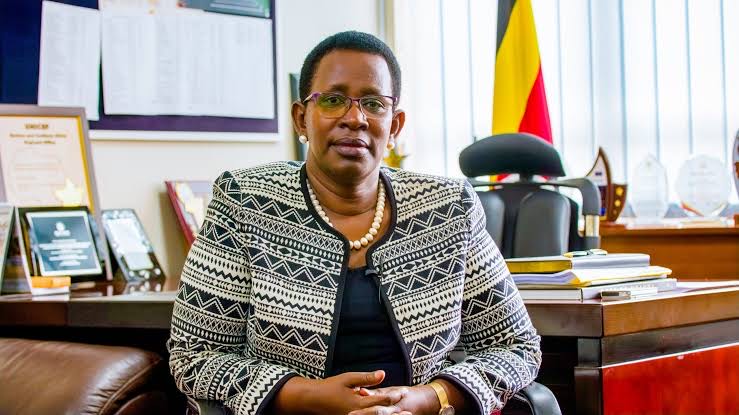With U.S. President Donald Trump suspending all USAID programmes, the Ugandan government has decided to close most aid-run HIV clinics as it considers its next move, writes John Musenze.
The Ministry of Health has phased out all standalone HIV/AIDS and tuberculosis (TB) clinics, integrating their services into general outpatient and chronic care units within hospitals and lower-level health facilities.
Dr. Diana Atwine, Permanent Secretary of the Ministry of Health, stated that services previously offered at standalone clinics will now be provided within general healthcare settings.
“All executive directors of National referral hospitals, directors of regional referral hospitals, District health officers, medical superintendents of general hospitals, and health facility in-charges must ensure that HIV/AIDS, hepatitis B, hypertension, and diabetes services are fully integrated into routine outpatient and chronic care services,” Atwine emphasized in an official statement on February 7, 2025.
Doctors treating chronic illnesses such as hypertension and diabetes will now also manage HIV/AIDS and TB patients under this new system.
Addressing public concerns, Dr Atwine dismissed claims that HIV clinics were completely shutting down.
“We encourage people living with HIV to continue seeking care at general outpatient clinics,” she urged.
She explained that the ministry’s directive was not solely about HIV services but aimed at improving overall healthcare delivery by moving away from verticalized disease-specific clinics.
“The circular was meant to guide health workers on integrating services to eliminate the long-standing fragmentation, particularly in HIV and TB care. It wasn’t just about HIV but focused on multiple aspects of service delivery to enhance efficiency in our facilities,” Atwine said.
She acknowledged Uganda’s reliance on PEPFAR-funded health workers who have historically operated standalone HIV clinics across the country. However, she emphasized that the USAID funding freeze meant Uganda had to rethink how services were delivered.
“For years, we have depended on PEPFAR to support a large number of healthcare workers running standalone HIV clinics across the country. But with this funding uncertainty, we realized things could no longer continue as usual. Fortunately, this integration was already in progress, so the timing aligns with our healthcare reforms,” she added.
Dr. Atwine also reassured the public that the new system does not eliminate HIV-specific services but rather merges them into a broader healthcare framework.
“The clinics are not closed, despite the alarming and misleading headlines. What we are saying is that standalone HIV clinics must now be integrated with other healthcare services,” she clarified.
She gave an example from her recent visit to Kayunga, where she observed how integration is being implemented.
“Today, I was in Kayunga, and I saw firsthand how this integration works. It’s an excellent approach. Doctors treating hypertension and diabetes are now also attending to HIV patients. They have designated special days for HIV care, but instead of isolating HIV patients, they are seen in the same environment as others receiving treatment. So, it is incorrect to say that people will be left without care,” she explained.
The shift to integrated healthcare also affects antiretroviral drug (ARV) distribution. With standalone HIV clinics closing, ARVs will now be dispensed within general hospital pharmacies instead of separate, specialized HIV pharmacy units.
These changes come just three weeks after President Trump imposed a 90-day freeze on all USAID programmes worldwide, disrupting numerous HIV initiatives, partner organizations, and healthcare services in Uganda.
Uganda pioneered dedicated HIV clinics in the late 1990s, establishing safe spaces for HIV testing, counselling, and treatment. This approach significantly improved drug adherence and HIV testing rates, particularly among young people. As a result, HIV prevalence dropped from 19% in the late 1990s to 5% by 2024.


